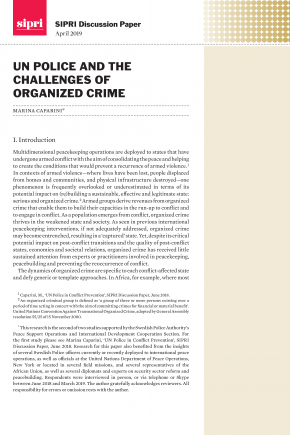UN Police and the Challenges of Organized Crime
This Discussion Paper considers peacekeeping’s challenges in dealing with the security and governance risks posed by organized crime in conflict-affected states, with a focus on the role of law enforcement and the United Nations police component. It contends that the environments in which peace operations are deployed have evolved due to the changing nature of armed conflicts—which are now mostly internal, involve multiple non-state armed groups, and are protracted and internationalized. Organized crime has become an important source of financing for non-state armed groups and presents several interlinked challenges: enabling the continued participation of armed groups in conflict, driving the expansion of the black and grey economies, and facilitating corruption in state institutions—especially those involved in law enforcement and justice. The paper suggests several ways in which UN peacekeeping could more effectively address the threats posed by organized crime to achieving and sustaining peace.
I. Introduction
II. What is the problem? The changing landscape of armed conflict, organized crime and peace operations
III. What is being done? Peace operations’ involvement in countering organized crime
IV. Why efforts to deal with organized crime have been insufficient
V. What more needs to be done?

